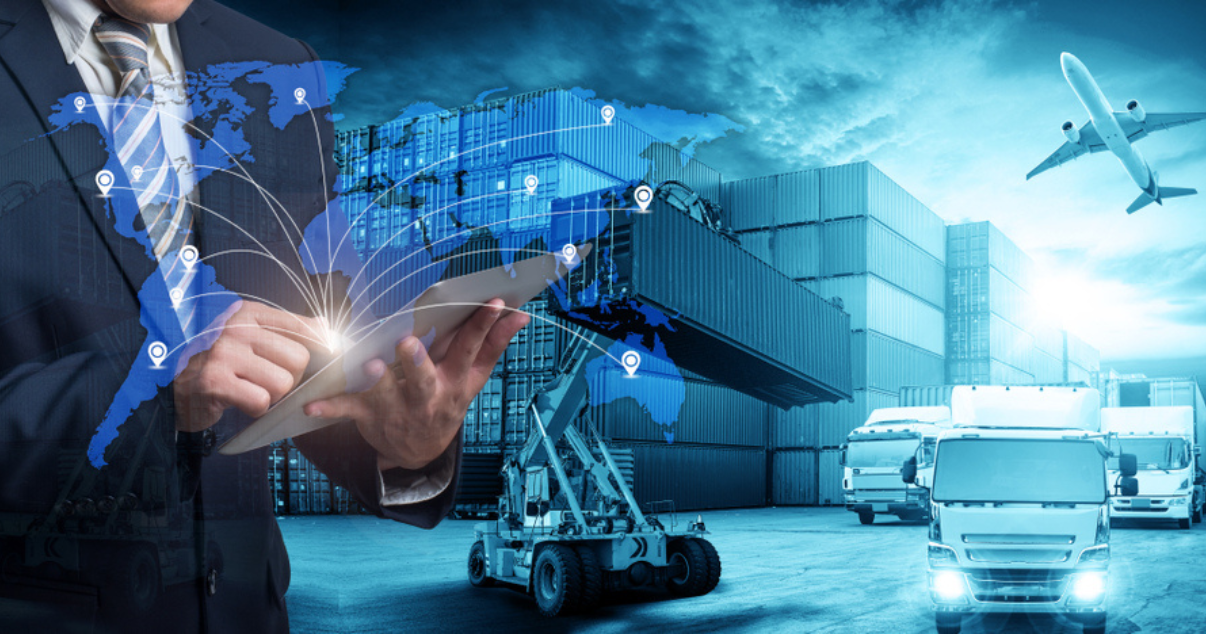Introduction
In recent years, the logistics industry has undergone rapid transformation, driven by new technologies, evolving consumer demands, and increasing global connectivity. The logistics landscape, which once relied on traditional methods of paper records, manual tracking, and opaque supply chains, is now becoming more transparent, efficient, and automated. Among these technological advancements, blockchain has emerged as one of the most promising solutions to revolutionize logistics. But how exactly can blockchain transform this multi-faceted industry?
In this article, we’ll explore the concept of blockchain, its potential applications in logistics, and its impact on key aspects such as transparency, security, traceability, and efficiency. Through an exploration of both opportunities and challenges, we’ll assess whether blockchain is truly the key to transforming the logistics sector.
What Is Blockchain and How Does It Work?
At its core, blockchain is a decentralized digital ledger that records transactions across multiple computers in such a way that the registered transactions cannot be altered retroactively. The ledger is distributed, ensuring that all participants in the network share the same data in real-time. The technology behind blockchain is often associated with cryptocurrencies like Bitcoin, but its applications go far beyond digital currency.
Each block in the blockchain contains a list of transactions, and every new block is linked to the previous one, creating an unbreakable chain of data. What makes blockchain particularly revolutionary is that once a block is added to the chain, it becomes nearly impossible to alter, which ensures the security, integrity, and transparency of the information stored on it.
Key Features of Blockchain
- Decentralization: Unlike traditional centralized systems where data is controlled by one entity (such as a bank or a logistics company), blockchain operates across a distributed network. This makes it more resilient to failures and tampering.
- Transparency: Every participant in the blockchain network can view the entire ledger, promoting transparency and trust in the data.
- Immutability: Once data is recorded on the blockchain, it cannot be altered, ensuring that the history of transactions is permanent and tamper-proof.
- Security: Blockchain uses advanced cryptographic techniques to secure data, making it resistant to fraud and cyber-attacks.
- Efficiency: Blockchain enables faster and cheaper transactions by cutting out intermediaries, reducing processing time, and automating various processes through smart contracts.
The Challenges Facing the Logistics Industry
Before diving into the potential applications of blockchain in logistics, it’s important to first understand the challenges faced by the industry:
- Lack of Transparency: In traditional logistics systems, data is often fragmented across different silos—transporters, suppliers, warehouses, and customs. This makes it difficult to track goods and verify the authenticity of shipments, especially when multiple parties are involved.
- Security Risks: The logistics sector handles sensitive data, including shipment details, payment information, and customer records. Cybersecurity breaches can lead to costly delays and even loss of valuable assets.
- Inefficiency in Paperwork: Much of the logistical process still relies on paper-based documentation, which increases the risk of errors, delays, and fraud. Paper-based systems are also slow and prone to human error.
- Complexity of Global Supply Chains: Supply chains are increasingly complex, with multiple stakeholders spread across various regions. Managing these intricate networks of suppliers, manufacturers, and distributors is a logistical nightmare.
- Counterfeit Goods and Fraud: The movement of counterfeit goods and fraudulent shipments is a significant concern, particularly in industries such as pharmaceuticals, luxury goods, and electronics.

How Blockchain Can Address Logistics Challenges
Now that we have an understanding of the key challenges, let’s explore how blockchain can offer practical solutions to these problems.
1. Enhanced Transparency and Traceability
One of the most powerful applications of blockchain in logistics is its ability to improve transparency. By recording every transaction and movement of goods on a shared ledger, blockchain allows all stakeholders in the supply chain—from manufacturers to consumers—to have access to real-time information about the status of shipments.
For example, imagine a shipment of perishable goods moving through multiple transporters, warehouses, and customs checkpoints. Each stage of the journey can be logged in a blockchain system, creating a transparent record that is accessible to all authorized participants. This ensures that everyone knows where the goods are at any given time, and it can help verify the authenticity of the products.
The result? Reduced risk of fraud, fewer lost shipments, and more reliable delivery times.
2. Boosting Security with Immutable Records
Blockchain’s immutability makes it an invaluable tool for ensuring the integrity of data. In the logistics sector, where documents such as bills of lading, shipping invoices, and customs forms are critical, blockchain can provide a secure and tamper-proof digital record of every transaction.
For instance, counterfeit goods are often introduced into the supply chain through forged documents. By using blockchain to store key documents like certificates of origin and customs declarations, any attempt to falsify data becomes nearly impossible. Additionally, blockchain’s encryption ensures that sensitive data such as payment information and shipment details remain secure from cyberattacks.
3. Streamlining and Automating Processes
Another area where blockchain can make a significant impact is by streamlining logistics operations. Through the use of smart contracts—self-executing contracts with the terms of the agreement directly written into the code—logistical tasks such as payment processing, order fulfillment, and inventory management can be automated.
Smart contracts can automatically trigger actions such as releasing payments when a shipment reaches its destination or updating inventory levels in real-time. This reduces the need for manual intervention, minimizes human error, and accelerates the entire logistics process.
4. Reducing Costs by Eliminating Middlemen
Blockchain enables peer-to-peer transactions without the need for intermediaries, which can lead to significant cost savings. In the traditional logistics model, middlemen such as banks, customs brokers, and freight forwarders often take a cut of the payment. Blockchain removes the need for these intermediaries, allowing parties to transact directly, thereby lowering transaction fees and processing times.
5. Preventing Fraud and Counterfeiting
Fraud and counterfeit goods pose a significant threat in industries such as pharmaceuticals, luxury goods, and electronics. Blockchain can help mitigate these risks by creating an immutable record of a product’s journey from manufacturer to consumer. For example, pharmaceutical companies can use blockchain to track the production, shipping, and delivery of drugs, ensuring that counterfeit products are not introduced into the supply chain.
By providing an unchangeable, transparent record, blockchain helps ensure that products are genuine, ethically sourced, and delivered as promised.
Real-World Applications of Blockchain in Logistics
The potential for blockchain in logistics is not just theoretical—there are already a number of companies and initiatives that are implementing blockchain solutions to optimize their supply chains.
- Maersk and IBM’s TradeLens Platform
In one of the most well-known examples, Maersk, the global shipping giant, has partnered with IBM to create TradeLens, a blockchain-based platform that digitizes and streamlines the entire shipping process. TradeLens offers transparency, real-time tracking, and automated workflows, enabling stakeholders to access a single, trusted source of information throughout the supply chain.

- Walmart’s Food Safety Initiative
Walmart has partnered with IBM to develop a blockchain-based food safety system. By using blockchain, Walmart can trace the origin of food products in seconds, allowing them to quickly identify sources of contamination in the event of a recall. This initiative enhances consumer safety and reduces waste by enabling more efficient tracking of food products.
- Everledger and the Diamond Industry
Everledger, a blockchain technology company, is working to bring transparency to the diamond supply chain. By recording the details of each diamond—from its mine of origin to its eventual sale—Everledger helps to reduce the risk of conflict diamonds entering the market while providing consumers with a transparent and ethical way to purchase precious gems.
The Road Ahead: Challenges and Considerations
While the promise of blockchain in logistics is immense, there are several challenges that need to be overcome before widespread adoption can occur.
- Integration with Existing Systems: Many logistics companies are still heavily reliant on legacy systems that are not compatible with blockchain technology. Integrating blockchain with these systems can be complex and costly.
- Regulatory Hurdles: The regulatory landscape for blockchain is still evolving, and there may be legal obstacles to overcome in terms of data privacy, intellectual property, and cross-border regulations.
- Scalability Issues: Blockchain networks, especially public ones, can experience bottlenecks when handling large volumes of transactions. Ensuring that blockchain can scale to meet the demands of global logistics will require technological advancements and investment.
- Adoption Resistance: Blockchain represents a significant shift in the way logistics companies operate, and some may resist adopting this technology due to fears of change or a lack of understanding.
Conclusion
Blockchain holds immense potential for revolutionizing the logistics industry. By improving transparency, enhancing security, streamlining operations, and reducing costs, blockchain can address many of the challenges that currently plague logistics systems. However, its successful implementation will depend on overcoming obstacles related to integration, scalability, and regulatory compliance.
As the logistics industry continues to evolve, blockchain solutions will undoubtedly play a key role in shaping the future of supply chains, creating more efficient, secure, and transparent global networks. For companies that are able to embrace and implement blockchain technology, the rewards could be substantial.










































